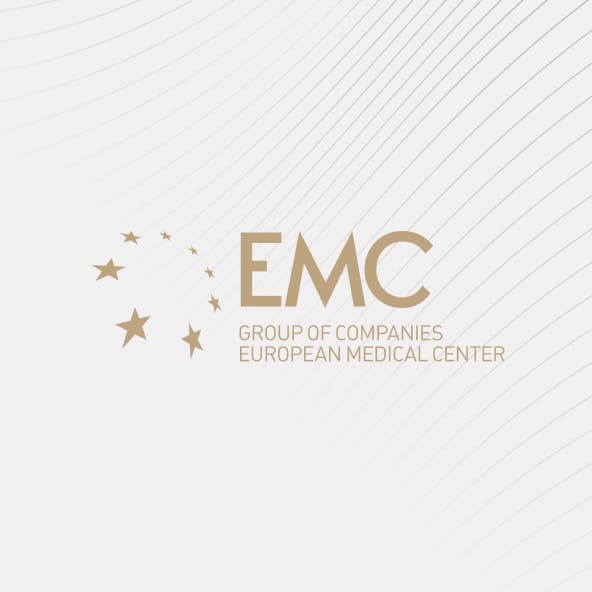Treatment of children with special needs
- Diagnosis, treatment and rehabilitation for: cerebral palsy, epilepsy, autism spectrum disorders, osteogenesis imperfecta, complex combined pathologies (cerebral palsy-epilepsy, autism-epilepsy, cerebral palsy-autism, etc.).
- Effective international treatment and rehabilitation protocols. We don't waste patients' time on experimental methods.
- Multidisciplinary approach to the management of patients with special needs with the participation of a neurologist, epileptologist, rehabilitologist, neuropsychologist, if necessary, neurosurgeon, ophthalmologist.
- Highly qualified doctors can provide any type of medical care to children with special needs, including in emergency situations and not only according to the profile of the underlying disease.
- The possibility of uncomfortable procedures in conditions of drug-induced sleep.
- Comfortable hospital, hospitalization of children with their parents.
- The space in the clinic is organized taking into account the special needs of children (a ramp, an elevator, wheelchairs, individual support by secondary medical staff).
- If necessary, it is possible to remotely obtain a second opinion from experts from the most reputable clinics around the world.
The key to success in treatment is the correct combination and sequence of methods with proven effectiveness.
Rehabilitation of children with cerebral palsy
In world practice, the use of botulinum toxin type A (BTA) preparations is recognized as the main method of rehabilitation of children with
cerebral palsy.
EMC is the only clinic in Russia where ботулинотерапия in case of cerebral palsy, it is performed in accordance with European standards:
- the use of ultrasound and/or electromyostimulation for precise drug administration;
- the use of anesthesia; the combined use of botulinum therapy followed by step-by-step plastering (a common practice in the world of cerebral palsy neurorehabilitation).
Voita therapy with parental training, Bobat therapy, proceptive neuromuscular facilitation (PNF), therapeutic gymnastics, kinesiotaping.
Manual therapy, including manual foot therapy according to the Barbara Zukunft-Huber method.
Breathing exercises, articulation exercises, magnetic therapy, ultrasound, phonophoresis, mechanotherapy and other techniques.
Rehabilitation work is based on neurocognitive diagnostics and psychomotor correction programs and is aimed at:
- correction and development of motor abilities, accuracy and coordination of movements;
- development of mental abilities;
- correction of cognitive dysfunction and difficulties
Treatment and rehabilitation of children with epilepsy
Epilepsy is one of the most common neurological diseases. Most children suffering from this disease can live a normal life, provided that an accurate diagnosis is made and proper treatment is prescribed to prevent seizures.
Currently, there are very effective medications to combat epilepsy, but in order to choose the most appropriate treatment option and dosages for each patient, it is very important to determine which type of epilepsy he suffers from. Some cases of epilepsy are not amenable to medical treatment and require surgical intervention, but a multidisciplinary group of experienced specialists based on specialized neurological and neuropsychological examinations of the child must first decide whether surgical treatment is the optimal solution in his case.
Currently, there are very effective medications to combat epilepsy, but in order to choose the most appropriate treatment option and dosages for each patient, it is very important to determine which type of epilepsy he suffers from. Some cases of epilepsy are not amenable to medical treatment and require surgical intervention, but a multidisciplinary group of experienced specialists based on specialized neurological and neuropsychological examinations of the child must first decide whether surgical treatment is the optimal solution in his case.
The treatment of epilepsy in EMC is:
-
Extensive diagnostic capabilities: EEG, EEG video monitoring of various duration (day and night). An EEG is performed by an epileptologist directly during the consultation in order to study brain activity and identify foci of epilepsy.
- High-tech diagnostics to find the source of epileptic seizures: MRI according to a special epileptological protocol, PET/CT is used in complex diagnostic cases.
- European and American drug therapy protocols.
- Neuropsychological diagnosis and control, assessment of a child's intellectual development and prognosis of the course of the disease.
- Accurate definition of the form of epilepsy according to the standards of the International Antiepileptic League (ILAE) allows you to choose the right treatment or avoid unnecessary medication in patients with benign forms of the disease.
- Patient-oriented approach: working closely with parents, providing complete information about the course of treatment.
- If necessary, neurosurgical treatment of epilepsy is performed, and a vagus nerve stimulator is installed. Postoperative care and patient monitoring are provided.
The epileptology team at the European Medical Center is part of the Department of Neurology at the EMC, which employs a multidisciplinary team of specialists: pediatric neurologists, neurophysiologists, neurosurgeons, neuropsychologists, middle and junior medical the staff.
We have accumulated a lot of experience in the treatment of childhood epilepsy. All epileptologists have been trained in leading international epilepsy treatment centers.
We have accumulated a lot of experience in the treatment of childhood epilepsy. All epileptologists have been trained in leading international epilepsy treatment centers.
Treatment of osteogenesis imperfecta
Diagnosis, treatment, and rehabilitation after fractures resulting from osteogenesis imperfecta.
Full range of diagnostics: molecular and biochemical analysis of collagen, skin biopsy, bone biopsy, densitometry, X-ray examinations.
Modern standards of drug therapy aimed at increasing bone density, surgical treatment of fractures and deformities, rehabilitation and psychological support of the patient and family members.
Flexible titanium rods are used to treat fractures, which ensure stable fixation of the fracture without additional immobilization with a plaster cast, which often provokes new fractures.
Teaching the child and his parents the rules of behavior that will help in the future to avoid situations that provoke a fracture.
Helping children with autism spectrum disorders
Differential diagnosis of autism in complex cases. Selection of optimal pharmacotherapy for the correction of behavioral disorders, which helps further socialization of the child.
Sociomotor therapy:
- preparing for kindergartens and schools, compensating for the peculiarities of development. Thanks to a special set of motor exercises, the features of the child's cognitive development are adjusted in a playful way.
- Correction of speech problems.
- Correction of vision problems.
Working with parent-child relationships.
- Teaching parents how to communicate properly with their child, raising awareness about the disease.
Get help
Specify your contacts and we will contact you to clarify the details.
Doctors
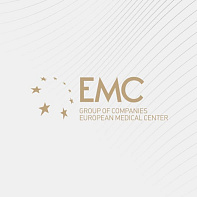
Amina Ibragimova
Pediatrician, emergency care
-
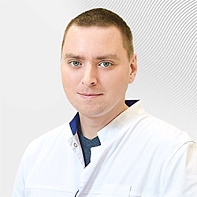
Pavel Chernyshev
Pediatrician, emergency care
-
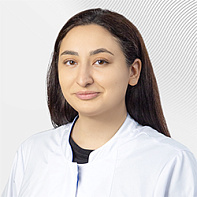
Lyusine Movsesyan
-
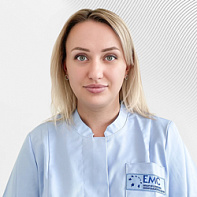
Aleksandra Kuskova
-
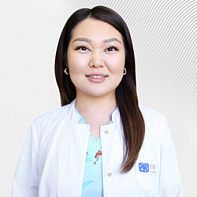
Bairta Dorzhieva
-
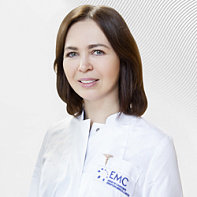
Svetlana Grigoreva
Pediatrician at the Children's hospital
-
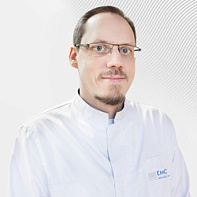
Artyem Lyagin
-
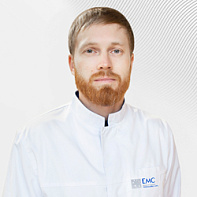
Igor Kovalyunas
-
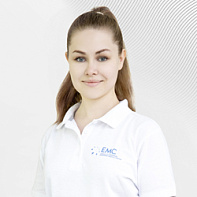
Anastasiya Medikova
-
.jpg)
Yanar Eda
-
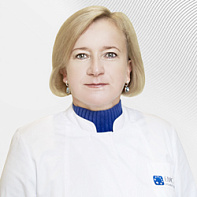
Vasilevskaya Irina
Pediatric cardiologist, polyclinic, Ph.D. of Medical Sciences
-
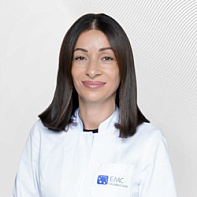
Tsitlidze Nana
Ph.D. of Medical Sciences
-
.jpg)
Pritchina Natalya
Pediatrician, polyclinic
-
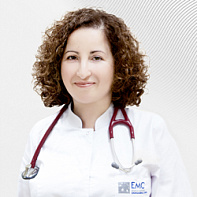
Samsonovich Inna
Pediatrician, polyclinic and emergency care, Doctor of the highest category
-
.jpg)
Istomina-Luiza
Doctor-clinical psychologist, hospital
-
.jpg)
Fayko Alexandra
-
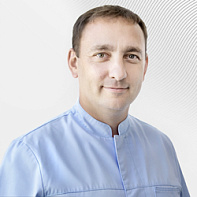
Lahai Yakim
-
.jpg)
Popova Irina
Polyclinic and hospital, Ph.D. of Medical Sciences, Doctor of the highest category
-
.jpg)
Muradov Sayyad
Pediatrician, emergency care, Ph.D. of Medical Sciences
-
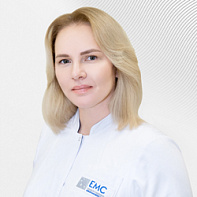
Kenchadze Yulia
-
Amina Ibragimova
Pediatrician, emergency care
- Specialization — emergency conditions in children, diagnosis and treatment of infectious and somatic diseases, rational pharmacotherapy, interpretation of laboratory and instrumental studies
- Graduated from the First Moscow State Medical University named after I.M. Sechenov, Pediatrics
- Postgraduate student of the Department of Pediatrics with Infectious Diseases in Children at the N.I. Pirogov Russian National Research Medical University
Total experience
8 years
Experience in EMC
since 2025
